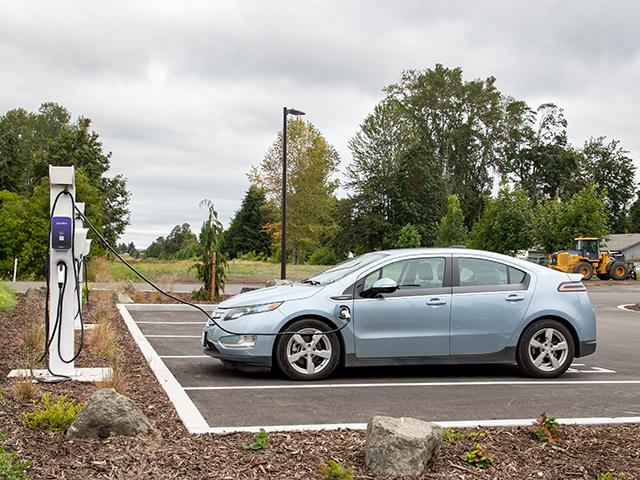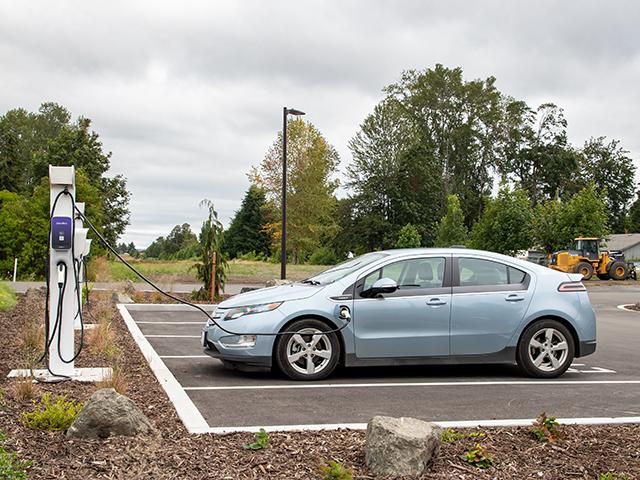An Urban's Rural View
An Uncompetitive Detroit Risks Becoming Even More Uncompetitive With UAW Strike
As a former member of the United Auto Workers Union (I worked in UAW factories for three summers during college) and as a former labor reporter (I covered organized labor for The Wall Street Journal in Washington from 1977 to 1980), I can empathize with the auto workers who are on strike against Detroit's Big Three. I worry, though, that what they're seeking isn't in their long-term best interest.
The UAW made big concessions in previous contracts when the companies were on the ropes. Now Detroit is very profitable and the top auto execs are making millions. Naturally the folks on the factory floor think they should share in the bounty, especially since other unions have been scoring big contracts. I understand that. I worked on the factory floor.
As a labor reporter, I got to know a lot of union presidents. It was fun covering them for some of the same reasons it's been fun covering farmers in more recent years. Corporate executives are often tight-lipped; union leaders and farmers aren't afraid to share information. They like to talk, and journalists like talking to them.
Union presidents are politicians. Unlike corporate executives, they're elected to office. If the folks on the shop floor are unhappy, they can elect someone else. Smart union leaders -- and these guys aren't dummies -- give the voters what they want.
What they want from the auto makers this year is a lot, and UAW president Shawn Fain seems determined to give it to them. Their opening demand was for a 40% wage increase over four years, a 32-hour work week at 40 hours pay and a raft of costly benefit increases.
P[L1] D[0x0] M[300x250] OOP[F] ADUNIT[] T[]
By one estimate, agreeing to this initial demand would increase the Big Three's average hourly labor costs to $136 per hour from $66. Since then, the union has brought its wage-increase demand down to 35%. The companies have been offering much less, 20% tops.
With a gap like that, a strike was inevitable. It started Sept. 15 and it could be a long one. At the outset, the union had an $825 million strike fund to keep its picketing members solvent. To make the fund last longer, the UAW is targeting selected factories on a rotating basis rather than all of them at once.
A long strike could cost the companies billions in lost profits -- billions they need for investments in producing electric vehicles. Giving in, though, would be bad for the Big Three.
For one thing, they're not so big anymore; foreign-owned factories and Tesla make fully half of the vehicles produced in the U.S. That's part of Detroit's problem.
Worse, these competitors are non-union; they have a big labor-cost advantage. Tesla's average hourly labor costs are estimated at $45, some 20 bucks below Detroit's. Double-digit annual raises and a four-day week would render the Big Three even more uncompetitive.
GM, Ford and Chrysler have been shrinking for years. A severely uncompetitive contract would force them to shrink still more. If the folks on the factory floor get what they want, they will be taking a big step toward pricing themselves out of their jobs.
For the union, electric vehicles are part of the problem. Conventional wisdom says they're easier to build because they have fewer parts, which means it won't take as many auto workers to build them. Even those who dispute conventional wisdom think the transition to electric vehicles will cost jobs. (https://www.wardsauto.com/…)
Still, in the long run the auto workers can only do as well as their employers do. It's hard for them to see that, though, and union leaders don't get re-elected by talking about the future. Our country's history of us-against-them labor-management relations has conditioned labor to fight for better pay and conditions now and let management worry about competitiveness.
Other countries have tried to instill a stronger sense of we're-all-in-this-together. In Germany, labor leaders have seats on companies' boards of directors. Japan has company unions. Labor-management relations are still often tense, but they're usually less antagonistic than in the U.S. In Japan, strikes are rare.
The U.S. isn't about to mimic Germany or Japan. That's understandable. There are more American ways of aligning the interests of labor and management, like giving employees economic incentives to promote their employers' competitiveness. Tesla's workers get stock in the company.
The Big Three have profit-sharing arrangements with the UAW, and some workers have reaped as much as $12,000 a year from them. As much as I empathize with the workers, a smarter deal for both them and management would be smaller pay increases and sweeter profit-sharing schemes.
Urban Lehner can be reached at urbanize@gmail.com
(c) Copyright 2023 DTN, LLC. All rights reserved.






Comments
To comment, please Log In or Join our Community .